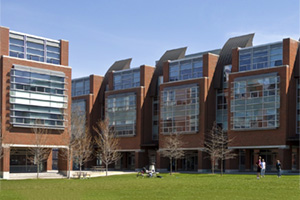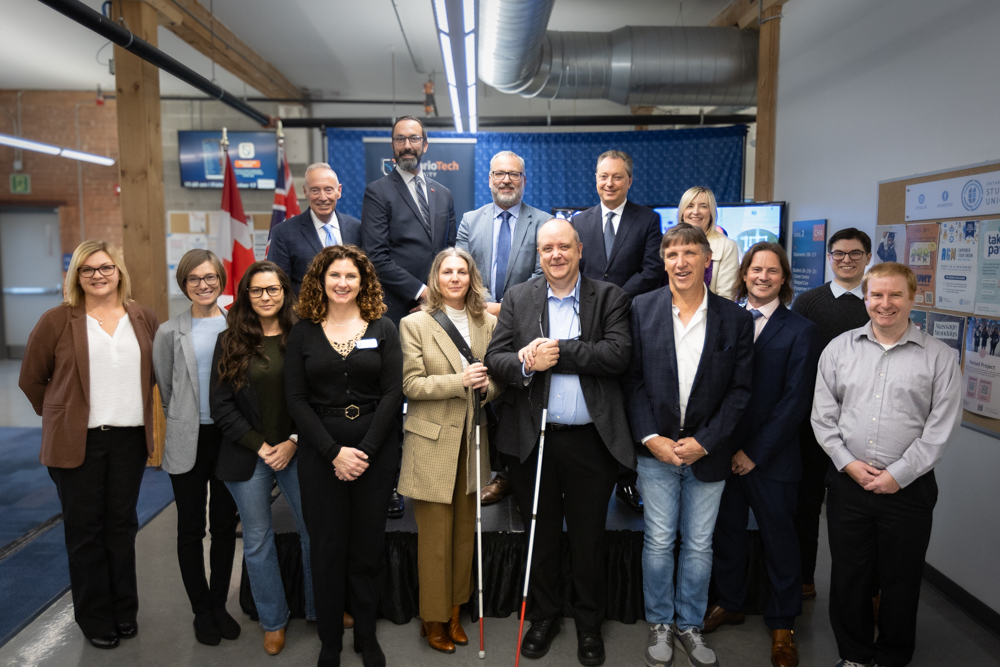UOIT researchers receive $1.9 million boost from NSERC
July 11, 2014

Seventeen researchers at the University of Ontario Institute of Technology (UOIT) have collectively received more than $1.9 million as part of the Natural Sciences and Engineering Research Council of Canada’s (NSERC) Discovery Grants Program.
"We would like to thank Industry Canada and NSERC for their continued commitment and investment in breakthrough scientific and engineering research at the University of Ontario Institute of Technology,” said Dr. Michael Owen, Vice-President, Research, Innovation and International. “This funding will enable UOIT’s research faculty members and their graduate research students to engage in research that will have an impact on the advancement of science and engineering and applications for environmental, social and economic impact in Canada and worldwide.”
Among the UOIT recipients are two up-and-coming researchers who recently joined the university: Dr. Yuri Bolshan, Assistant Professor, Faculty of Science (FS), and Dr. Brendan MacDonald, Assistant Professor in the Faculty of Engineering and Applied Science’s (FEAS). These researchers are focusing on reducing the environmental impact in their respective fields.
Dr. Yuri Bolshan
As an expert in Organic and Medicinal Chemistry, Dr. Bolshan is researching novel ways to form carbon-carbon bonds and their application to the synthesis of biologically active molecules.
The carbon-carbon bonding process, key to the production of natural products, pharmaceuticals and plastics, often requires the use of transition metals, such as palladium, as catalysts. These metals can be expensive and toxic. In addition, metal-catalyzed reactions in many cases require specific conditions.
Dr. Bolshan’s research offers a greener alternative: the use of non-toxic, transition-metal-free reactions involving organoboranes – chemical compounds based on boron, an inexpensive and environmentally benign element. Together with master’s student Cassandra Taylor, he recently developed a metal-free reaction for the preparation of ynones: important chemical building blocks with biomedical and material significance, with applications for natural pharmaceutical products.
“Overall, the outcomes of this research will result in greater atom economy and will decrease the amount of toxic waste associated with metals in both academic and industrial settings,” Dr. Bolshan said. “It will lead to greener methods for synthesizing the compounds that are crucial to biological and medicinal discovery and advancement.”
Dr. Brendan MacDonald
Dr. MacDonald is working on developing energy-efficient, high-capacity and environmentally friendly evaporative cooling technology. Current cooling technology used in living and work spaces can place high demands on energy requirements. Many cooling methods also require the use of environment-damaging refrigerants. Scientists are also trying to develop better cooling methods for electronic devices, which can overheat from high power demands.
Dr. MacDonald is looking at developing a more environmentally-friendly cooling technology that mimics perspiration, nature’s cooling mechanism for humans. Through perspiration, humans cool off naturally as the droplets on their skin evaporate.
“Gaining a better understanding of the evaporation process is becoming increasingly important as technology decreases in size to the micro- and nano-scales,” said Dr. MacDonald.
The Discovery Grants Program is NSERC’s largest program and a key element of Canada’s support for excellence in Science and Engineering research and training at Canadian universities. It gives researchers the freedom and flexibility to pursue the most promising research directions as they arise, encouraging creative and cutting-edge approaches and international collaborations.



